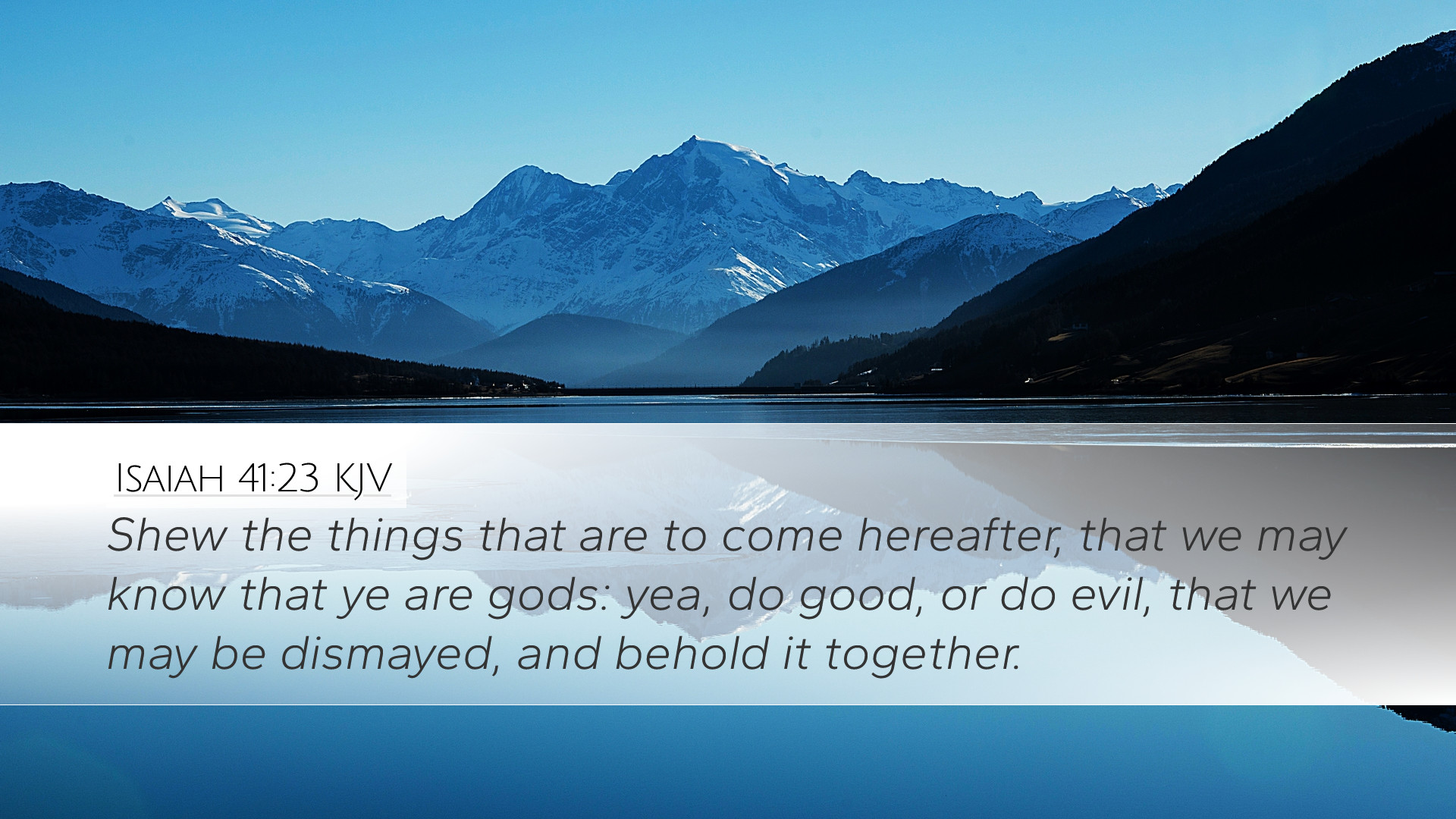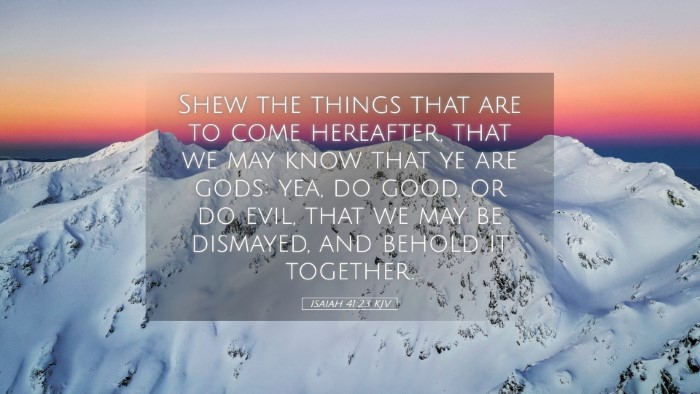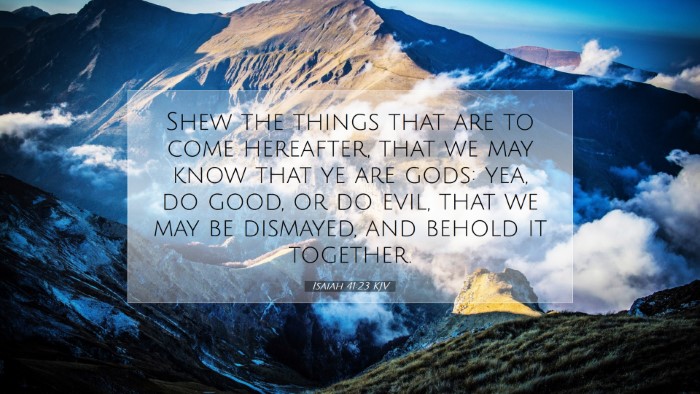Commentary on Isaiah 41:23
Verse Reference: Isaiah 41:23 - "Show the things that are to come hereafter, that we may know that ye are gods: yea, do good, or do evil, that we may be dismayed, and behold it together."
Introduction
The book of Isaiah is filled with profound prophetic insights and declarations concerning both Israel and the nations. In Isaiah 41, we find God addressing the nations, challenging them with rhetorical questions to unveil their impotence compared to His divine sovereignty.
The Challenge to the Idols
This verse presents a stark challenge to the idols and false gods that the people often turn to for guidance and comfort. Matthew Henry notes that God invites the idols to demonstrate their divine power by predicting future events, emphasizing that true faith is rooted in God's omniscience and omnipotence.
Albert Barnes elaborates that the context of the chapter highlights God’s supremacy over all that exists, positioning Him as the only true deity capable of foretelling the future. The challenge to the false gods is a crucial part of God's indictment against idolatry, solidifying the assertion that no other so-called gods can perform such acts.
Understanding the Prophetic Context
In a world where many cultures revered multiple deities, this verse serves as a moment of divine clarity. Adam Clarke remarks that God’s challenge—“Show the things that are to come”—is an assertion of His unrivaled position. This insistence on predictive prophecy becomes a recurring theme throughout scripture, reinforcing the idea that only the true God knows the end from the beginning.
Additionally, Henry emphasizes that prophecy serves not only as a testament to God's power but also as a mechanism for human reassurance, offering a divine roadmap through uncertainty.
The Nature of God Versus False Gods
God’s challenge—“do good, or do evil”—is an invitation to demonstrate their power, yet it is inherently rhetorical as it is understood that false gods are without true ability or authority. Barnes notes that the futility of these idols leads the reader to realize that only the Living God can actuate change, perform miracles, and affect the course of history.
This line exemplifies the nature of God as being the ultimate creator and sustainer of life. Clarke aligns with this sentiment, asserting that God alone has the authority to pronounce judgment and act upon it, thereby illustrating the impotence of the idols as mere carvings lacking breath and life.
The Call for Reflection
God’s command for the people to “behold it together” implores a collective awareness of God’s greatness and the need for reliance on Him. Henry points out that this call for introspection encourages us to weigh the presence of God against the backdrop of the surrounding world. The helplessness of the idols becomes starkly visible when contrasted with God's mighty acts and declarations.
This is a powerful reminder for contemporary audiences—pastors, students, and theologians—about the importance of recognizing God's hand in our lives. Clarke affirms that, as believers, we ought to consistently reflect upon God’s past faithfulness to bolster our present faith and future hope.
Application: Faith in the Sovereign God
This verse urges believers to entrust their futures to the One who is not bound by time or circumstance. In an age where many seek reassurance from various sources, Barnes suggests that this text calls for a renewal of faith in God’s promises, as they are the only source of genuine truth and hope.
Concluding with Henry, the response to God's challenge is not merely cognitive acknowledgement but an active faith that manifests in our lives, representing a rejection of worldly idols, and embracing the sovereign Lord, whose plans stand eternal.
Conclusion
Isaiah 41:23 succinctly encapsulates powerful theological themes that resonate throughout Scripture—God's omniscience, the futility of idols, and the assurance found in His supremacy. For pastors, students, and scholars, this verse serves as both a challenge and a comfort, inviting us to examine where we place our trust and encouraging us to behold the unfolding of God’s redemptive history.
As we reflect on this text, may we find ourselves increasingly assured of God’s power, equipped to declare His truths, and emboldened to follow Him, being reminded that He alone is God.


